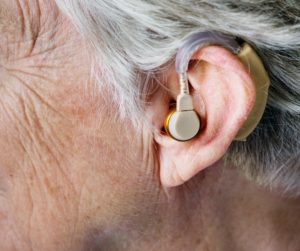
If YOU want to hear better than you presently are, then you may be helped by hearing aids or some other assisted listening device.
It might sound shocking for a company that sells hearing aids to say this but, no one “NEEDS” hearing aids. The question that really matters is: DO YOU WANT TO HEAR BETTER? It doesn’t really matter how good or bad your hearing is, if YOU want to hear better than you presently are, then you may be helped by hearing aids or some other assisted listening device.
What really matters is if you have a problem that you want to be fixed. Of course, a hearing loss may progress so gradually that you don’t always notice how it affects you. Others might be more aware of the problems your hearing is causing both you and them. So, here’s a series of questions that may help you determine if you’re having trouble with your hearing.
1. Do you often ask others to repeat themselves?
2. Do you ever have dif culty hearing in a car?
3. Do you ever have dif culty hearing on the phone?
4. Do you ever have dif culty understanding family or friends voices?
5. Do others ever mention that you turn the radio or T.V. up too loud?
6. Do you nd it dif cult to understand conversations in noisy places?
7. Does it often sound as if people are mumbling?
8. Do you have dif culty hearing in group situations?
9. Do you avoid any situations because of a hearing dif culty?
10. Have you noticed any change in your memory?
11. Does your hearing dif culty cause you stress?
12. Do you ever feel that others avoid talking to you because of a hearing loss?
Everyone, even people with good hearing, are going to answer yes to a couple
of those questions, at least in certain situations. However, if you answered yes to ve or more of the above questions you may have a hearing loss that, at the very least, is beginning to have an impact on the quality of your life.
So, the next question you need to answer is: if you have a hearing loss, are you willing to try hearing aids or some other assisted listening device?
If no, here’s a couple things you should know about an untreated hearing loss:
Hearing loss can contribute to a loss of cognitive function. In other words, it may contribute to dementia. If you want to remain as healthy as possible, both physically and mentally, then you need to remain as physically, mentally and socially active as possible. Your brain needs exercise just like your muscles do. When you have an untreated hearing loss, your brain can’t get all the exercise it needs.
Article Provided by:
Nathan Willard, Hearing Aid Specialist,
SoundScape Hearing Aids
541-414-8488
www.SoundScapeHearing.com
Search Retirement Connection Listings for Residential Care Facilities
Search Residential Care Facilities for Grants Pass
Search Residential Care Facilities for Klamath Falls
Search Residential Care Facilities for Medford
Search Residential Care Facilities for Roseburg

